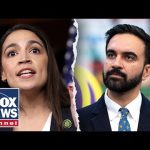ABC’s decision to yank Jimmy Kimmel’s show off the air came after a firestorm ignited by his monologue about the killing of conservative activist Charlie Kirk, and it was immediately followed by public commentary from Federal Communications Commission Chair Brendan Carr that many view as a threat to broadcasters. Carr suggested the FCC could take action against ABC and its affiliates and warned that companies could “do this the easy way or the hard way,” language that prompted stations to preempt the program. Local affiliates including major groups moved quickly to remove the show from their lineups, a chain reaction that happened in hours, not weeks.
What should alarm every defender of liberty is the way a government regulator’s rhetoric appears to have produced the very result he touted — a network pulling a high-profile host. Legal experts and free-speech advocates have called Carr’s tactics classic “jawboning,” where the coercive power of the state is used to influence private companies to silence speech they find inconvenient. When an agency entrusted with licensing broadcasters starts sounding like a press secretary for popular outrage, the line between lawful oversight and political muscle-flexing disappears.
There’s also an ugly transactional smell to how some station owners reacted, with at least one major group citing public outrage rather than ratings or journalistic standards when it preempted Kimmel. That move came amid larger corporate interests and pending FCC approvals, making it hard not to view the preemption as a capitulation to regulatory leverage. When business deals and government oversight intersect like this, the result is predictable: companies pick the safe, political option instead of defending open discourse.
Let’s not pretend this is purely about a late-night joke gone wrong. Hollywood’s late-night circuit has long trafficked in partisan caricature, and networks have often protected that license when the targets were on the left. The difference here is the unmistakable involvement of the federal government’s communications regulator, which turned what should have been a network decision into a broader constitutional fight over who gets to determine acceptable speech. That should make anyone — left, right, or center — uneasy about where this precedent leads.
Politicians reacted predictably along partisan lines, but the core constitutional question transcends political glee. Senators and commentators blasted Carr’s comments as dangerous coercion, while the President praised the outcome and defended the FCC chair, exposing how enforcement of broadcasting rules can become a tool of the moment. If regulators can tacitly order speech off the air because it angers a faction, then no outlet is safe and no viewpoint is secure.
Conservatives who value free expression should be as upset about this as anyone who believes in the First Amendment, because once you allow regulators to steer programming through intimidation you’ve ceded public debate to bureaucratic whims. The right response is not to cheer every hit to a media adversary, but to demand clear boundaries: enforce laws, yes, but stop using licensing power as a political cudgel. America’s public square is bigger than one late-night monologue, and it must remain open to all voices without Washington’s heavy hand deciding who stays and who goes.




